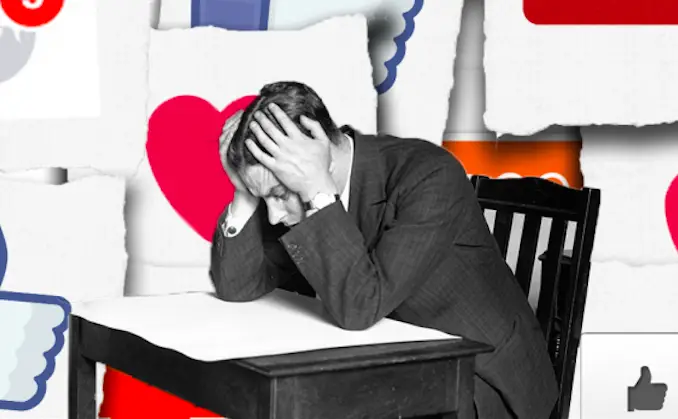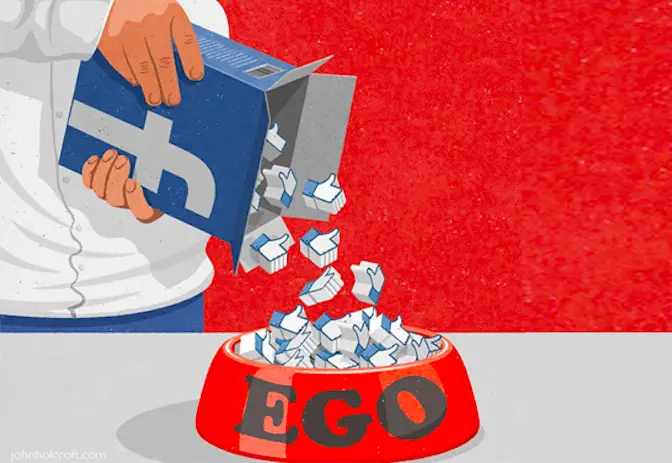There was one discrete moment in internet history in which a concept was born that defined the landscape of social media as we know it. On Feb. 9, 2009, after a long process of trial, error, debate and reiteration, Facebook rolled out a feature that has become absolutely pivotal to all of today’s online social platforms: the “Like” button.
In the initial announcement of the feature — aptly placed in a Facebook post called “I like this” — early Facebook employee Kathy Chan explained the rationale of it quite logically. “I had a friend write a note about running her first marathon… [the note] ended up with over 30 comments, all saying: ‘Awesome!’ ‘Congrats!’ The aggregation of the sentiment ‘I like this’ makes room in the comments section for longer accolades.”
Life’s accomplishments do often call for congratulations and various forms of validation from peers. It’s a perfectly healthy and natural desire to wish for people to “like” you. But things tend to go awry when that desire becomes an obsession. An obsession over likes, especially amongst young people, has driven many to consider a form of social media where they can opt out of displaying their follower counts on their profiles or the number of likes they have on their posts.
Most famously, Kanye West, the husband of arguable queen of social media Kim Kardashian, took to Twitter to share his thoughts. He tweeted, “we should be able to participate in social media without having to show how many followers or likes we have.” Jack Dorsey, founder and CEO of Twitter, soon replied. “We’ve been thinking deeply about the follower and like counts, and what that incentivizes. We want to change. What made sense 12 years ago doesn’t make sense today. At least for us. Us making that number bold and big incentivized people to want to increase it and feel bad if they couldn’t. That’s not right. We want to incentivize contribution to the global conversation and consciousness.”
https://twitter.com/kanyewest/status/1042779425048211456
According to an online survey of users between the ages 16 and 64, total time spent on social media across all platforms grew from 90 minutes to 135 per day worldwide between 2012 and 2017. At roughly two hours per day for 365 days per year, the average person spends 730 hours — close to one month — on social media per year. The astronomical increase in social media usage in the past decade seems to be where poring over “likes” — be it your own or others’ — transitioned from a benign desire to an unhealthy obsession.
Statistically, even if you’re only partaking in social media about half as much as the average person, you are still be spending whole weeks out of the year scrolling through other people’s photos and posts, subconsciously comparing the number of likes and favorites they received to your own, all the while constantly awaiting the bright red dopamine hit of a new notification. The obsession goes so far that many, many people have been buying Facebook likes to make them look more popular than they really are.
It’s not hard to see that this would likely take a toll on the psyche. A study published in the Journal of Cyberpsychology, Behavior and Social Networking asserted that although the relationship between social media usage and mental health issues has remained “controversial, and research on this issue is faced with numerous challenges,” recent findings have suggested a connection between social media usage and depressive symptoms, changes in self-esteem and internet addiction.
This where the argument for hiding likes and follower counts comes in. A lack of likes on a post might give the original poster a feeling of inadequacy, especially in comparison to others’ posts. A lack of followers may have a similar effect. If, however, these media hid the number of likes a post received, then they could guard users from the feeling of inadequacy that results when a post accrues very little positive attention.
However, this idea ignores a major psychological factor. If you were to opt out of allowing others to view your follower and like counts, you would still compare yourself to those who have not chosen to opt out. Social media users would still know their own like and follower counts and be able to make such comparisons anyway, even if others can’t. While a consensus has not been reached on how social media sites could hide user and post metrics, it seems logical that it would have to be an all-or-nothing move — everyone would have to have their likes and follower counts hidden, or such a change would fail to curb these unhealthy comparisons.

A similar study done by researchers in Germany who particularly studied Facebook found that the primary cause of frustration from social media use was feelings of envy on the part of the user. As obvious as that may be, the interesting finding was that active engagement (posting, interacting with posts, etc.) on Facebook was linked to higher “life satisfaction” and “social support.”
On the other hand, passive following (lurking, blanket scrolling) was linked to lower life satisfaction, and the more one lurked, the worse the impact was. While the study took into account the positive feelings one tends to have when sharing and posting on social media, there wasn’t significant analysis on likes and their impact on mental well-being.
Many studies on the matter have found an inverse relationship between self-esteem and the level of importance the person gives to the number of likes they get on social media. However, a study done by Burrow and Rainone in March 2017, where 102 undergraduate students posted selfies on a mock social media site and were then given randomly fabricated feedback about the amount of likes they received in comparison to the average, found that the determining factor for whether a person’s self-esteem is impacted by likes or not is their preexisting sense of purpose in life.
It should be noted that one’s sense of life purpose and satisfaction is usually inherent; someone who is truly satisfied with their life and feels that they have a meaningful purpose holds this belief within them, unmarred by external factors. This is where the argument for hiding likes and follower counts breaks down. Whether likes are hidden or not, the impact of the feedback one receives on social media tends to be determined by one’s own inherent mental fortitude.
Hence, if likes are hidden, people who have a sense of life purpose will likely tend to maintain their self-esteem. People with less of a sense of life purpose will likely be impacted regardless, as their self-esteem is more often determined by external factors anyway. Perhaps one wouldn’t feel a sense of public embarrassment for a lack of social validation, but self-esteem would still likely be impacted by the knowledge that one didn’t get many likes.
There isn’t much to suggest that large tech companies will do away with visible likes and follower counts very soon. Dorsey’s response to West, though seemingly promising, will take much time and consideration before culminating into an actual change on Twitter. The larger issue to address lies away from social media at large. If users continue to find validation in others’ feedback, then it’s unlikely that they’ll ever truly be satisfied. The hardest lesson to learn in the digital age remains to be that despite all of the external sources of validation, true satisfaction must come from within.
















